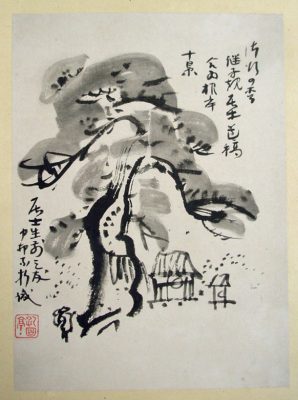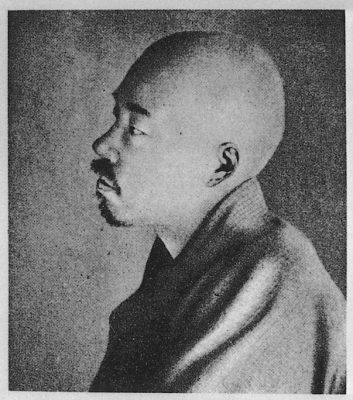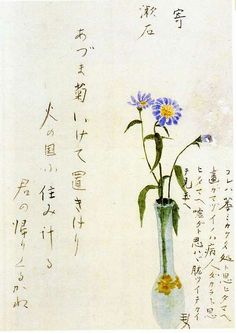Japanese Poetry and Masaoka Shiki (1867-1902): The shadow of death
Lee Jay Walker
Modern Tokyo Times

The famous Japanese poet Masaoka Shiki was born in 1867 just one year before the Meiji Restoration of 1868. Sadly, his time on this earth would be short because the shadow of tuberculosis would blight his life from 1888/1889 onwards. Therefore, pain and suffering that followed aspects of his early life, would follow him like a pernicious and deadly shadow waiting to devour his very existence.
Shiki in one poem simply speaks about the snow falling and him witnessing this through a small hole. In this itself, it implies how he isn’t seeing the bigger reality. Hence, he also stresses that this minor reality is all that is encompassing him at this moment in time.

In the above words, you can feel the alienation of the reality of the snow outside. No words of either joy or melancholy. Instead, a coldness of just “lying here” without any sense of happiness, the feeling of security, or the alternative feeling of despair
It must be remembered that prior to tuberculosis blighting his young adulthood he also witnessed the demise of his father when he was only five years of age. Not only this, but his father suffered from being an alcoholic and one can only imagine the crushing reality of this to Shiki. Therefore, pain and the emptiness of life shaped deep thoughts of negativity despite his early years of hope when moving to Tokyo.
Despite the adversity of Shiki’s life he is regarded to be among one of the great masters of haiku. This is a great achievement for someone who would pass away at a relatively young age. Shiki is regarded by some specialists to be one of the four distinguished masters of haiku along with Matsuo Basho, Kobayashi Issa, and Yosa Buson.

The words of Shiki when the ravages of ill health were blighting him also show strength and acceptance. He wrote his last day is still unknown but that it was getting nearer. Therefore, seeds were planted by friends in a place that he cherished, in the hope that he would see a new autumn – in the knowledge that his early autumn was nearing for eternity.
In the words by Shiki, you do not feel the sense of redemption or a spiritual afterlife when thinking about the Abrahamic faiths. Nor do you feel the next reincarnation of Buddhism or the higher plane of escaping the cycle of life and death. Instead, you feel a sense of Shintoism and Confucianism that waits for nature to take its natural course given the circumstances of Shiki’s tuberculosis.
The last stages of Shiki’s life in 1901 and 1902 witnessed him writing three sickbed diaries. These are titled A Drop of Ink, Stray Notes While Lying On My Back, and A Six-Foot Sickbed.
Overall, this article about Shiki is meant to lure people into knowing more about this impressive poet. At the same time, to delve more deeply into the real poet of words who suffered such adversity but who leaves behind a powerful legacy.
Poems from the following websites:
https://allpoetry.com/Tanka-10
http://www.cloudsandseafrance.com/2015/07/two-haiku-by-shiki-masaoka-shiki-1867.html
https://allpoetry.com/Tanka-03
http://www.goodreads.com/quotes/7399590-i-do-not-know-the-day-my-pain-will-end
https://liberalartswarrior.wordpress.com/2011/04/19/a-few-tanka-by-masaoka-shiki/
https://www.poemhunter.com/best-poems/masaoka-shiki/tanka-03-2/
http://www.cloudsandseafrance.com/2015/07/two-haiku-by-shiki-masaoka-shiki-1867.html

Modern Tokyo News is part of the Modern Tokyo Times group
DONATIONS to SUPPORT MODERN TOKYO TIMES – please pay PayPal and DONATE to sawakoart@gmail.com
http://moderntokyotimes.com Modern Tokyo Times – International News and Japan News
http://sawakoart.com – Sawako Utsumi personal website and Modern Tokyo Times artist
https://moderntokyonews.com Modern Tokyo News – Tokyo News and International News
http://global-security-news.com Global Security News – Geopolitics and Terrorism
PLEASE JOIN ON TWITTER
https://twitter.com/MTT_News Modern Tokyo Times
PLEASE JOIN ON FACEBOOK
https://www.facebook.com/moderntokyotimes
Some art, poetry, and cultural articles by Modern Tokyo Times are republished because of our growing international readership and the need to inform people about the unique traits of Japan.